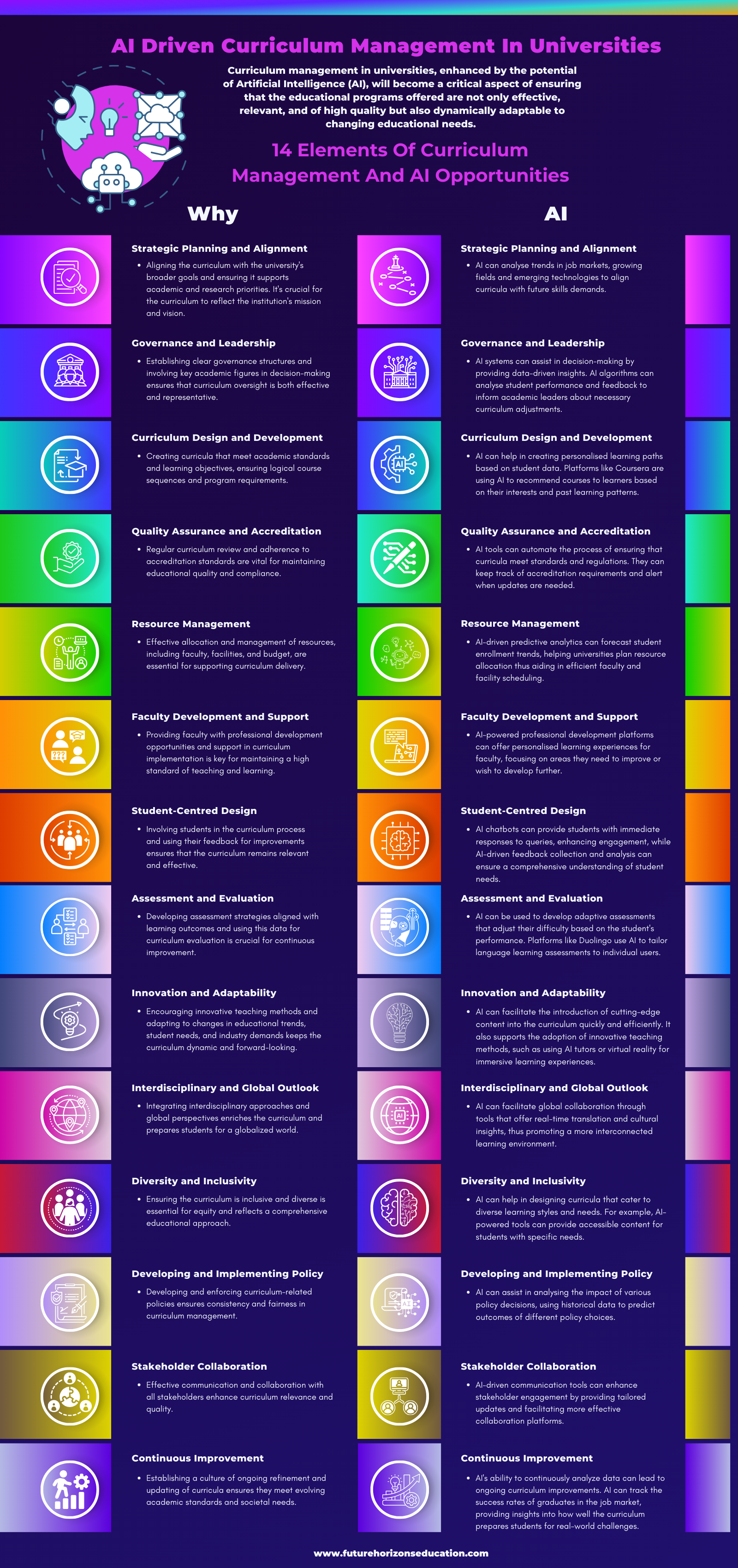AI and its relationship with 14 elements of Curriculum Design
In this blog we’re looking at the elements of curriculum design for universities and how AI is making or could make its presence felt.
Universities are working hard to make their curriculum student-centred and focused on the development of the key skills that will be needed by the graduates of the future.
Student-centred Feedback
By incorporating student perspectives, course designers can create more dynamic, interactive, and effective learning environments.
However, efforts to incorporate detailed student feedback and industry-relevant input into course design and development face difficult challenges.
With academic staff focused on teaching, research and publication, the time available for innovative course development is limited.
It is also difficult to get all students involved in the design of their courses, particularly with large cohorts, especially when the majority of students are busy both studying and having part-time jobs to support the cost of their education.
The quality and management systems within Universities to manage the student journey can also make it difficult to develop creative and innovative new programmes at pace.
This may sound like a paradox, but using AI can help to deliver more creative, student-centred programmes that can be highly flexible in terms of content, assessment, and course management within your University systems.
AI can help to filter through the key sources of data to support the design of a co-authored educational experience to enable both students and academics can become the co-creators of their Universities programmes.
Imagine an AI based course development support system which provides detailed analysis of the student and alumni course experience metrics and feedback analysis and then uses this data to support the design of the curriculum between academics and students.
This system can use AI to ensure alignment between new course design, quality and funding requirements, quality, and subject benchmarks, learning outcomes and industry skillset requirements by creating course templates to support the programme design process.
University leadership teams can also use these AI driven datasets to evaluate the competitiveness of programme proposals and the likelihood of successful delivery.
Future Horizons Education provides software services that enable universities to focus on the creation of innovative courses for the future that are genuinely student centred.
Our AI driven software will free up your academics and your students to work in a truly collaborative way to create high quality courses which are most suited to the diverse needs and interests of all involved in the Higher Education experience.
We have identified 14 elements that lie at the heart of the development of an innovative and well-managed curriculum in Universities and the opportunities which our AI software offer to address these. Contact us to learn about how we can help you deliver these.


